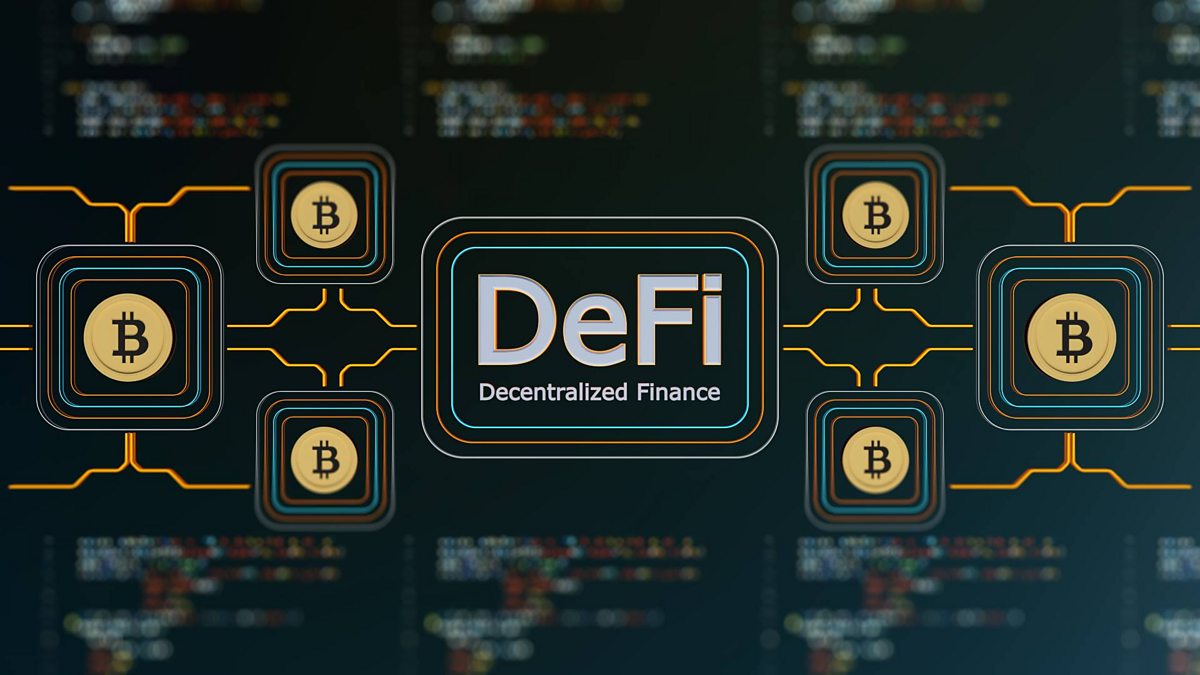Ultimate 7 Cryptocurrency Portfolio Management Tools Guide
Top cryptocurrency portfolio management tools to track, analyze & optimize your crypto investments. Compare features, pricing & security options.

Cryptocurrency portfolio management tools to track their holdings, monitor performance, and make informed investment decisions. Whether you’re a beginner with a small Bitcoin allocation or an experienced trader managing millions across DeFi protocols, the right portfolio management solution can significantly impact your investment success.
The cryptocurrency market operates 24/7, making it challenging for investors to manually track price movements, portfolio allocation, and profit/loss calculations across multiple platforms. Modern cryptocurrency portfolio management tools offer automated tracking, real-time updates, tax reporting features, and advanced analytics that were previously available only to institutional investors. These platforms have revolutionized how both retail and professional investors approach crypto asset management, providing insights that enable better decision-making and risk management strategies.
Cryptocurrency Portfolio Management
What Are Cryptocurrency Portfolio Management Tools?
Cryptocurrency portfolio management tools are sophisticated software platforms designed to help investors track, analyze, and optimize their digital asset investments across multiple exchanges, wallets, and DeFi protocols. These tools aggregate data from various sources to provide a comprehensive view of your entire crypto portfolio in one centralized dashboard.
Unlike traditional investment portfolio trackers, crypto-specific tools must handle unique challenges such as:
- Multiple exchange integrations and API connections
- DeFi protocol tracking and yield farming calculations
- Staking rewards and governance token distributions
- Cross-chain asset movement and bridge transactions
- Real-time price feeds from decentralized exchanges
- Complex tax implications for various transaction types
Key Features of Modern Portfolio Management Platforms
The best cryptocurrency portfolio management solutions offer a comprehensive suite of features designed to address every aspect of crypto investing:
Real-Time Portfolio Tracking: Advanced platforms provide live updates of your portfolio value, individual asset performance, and overall allocation percentages. This real-time data ensures you never miss critical market movements that could impact your investment strategy.
Multi-Exchange Integration: Leading tools support connections to over 300+ cryptocurrency exchanges and wallet addresses, automatically importing transaction histories and current balances. This eliminates the need for manual data entry and reduces the risk of tracking errors.
Advanced Analytics and Reporting: Sophisticated analytics engines calculate important metrics such as realized/unrealized gains, portfolio volatility, Sharpe ratios, and risk-adjusted returns. These insights help investors understand their portfolio performance beyond simple profit/loss calculations.
Tax Reporting and Compliance: Given the complex tax implications of cryptocurrency trading, top-tier platforms generate detailed tax reports compatible with popular tax software and accounting standards in multiple jurisdictions.
Top Cryptocurrency Portfolio Management Tools in 2025
Professional-Grade Platforms
CoinTracker has established itself as a leading solution for serious cryptocurrency investors, offering enterprise-level features with user-friendly interfaces. The platform supports over 300 exchanges and 8,000+ cryptocurrencies, making it suitable for investors with diverse portfolios across multiple platforms.
Key features include automatic transaction importing, advanced tax reporting for multiple countries, DeFi yield tracking, and institutional-grade security measures. CoinTracker’s strength lies in its comprehensive tax compliance features, making it particularly valuable for high-volume traders and institutional investors who need detailed reporting for regulatory purposes.
Blockfolio (now FTX App) revolutionized mobile cryptocurrency portfolio tracking and continues to be a popular choice among retail investors. The platform combines portfolio management with social features, news aggregation, and direct trading capabilities within a single application.
The app’s strength is its simplicity and real-time alerts system, which keeps users informed about significant price movements and portfolio changes. While primarily mobile-focused, Blockfolio offers sufficient functionality for most retail investors who prefer managing their portfolios on the go.
Advanced Analytics Platforms
Messari provides institutional-quality research and analytics tools alongside portfolio management features. The platform is particularly valuable for investors who want deep fundamental analysis capabilities combined with portfolio tracking functionality.
Messari’s unique value proposition includes access to detailed project fundamentals, on-chain analytics, and professional research reports that can inform investment decisions. The platform caters to investors who prioritize data-driven decision-making and want access to the same quality of information used by professional crypto funds.
DeFiPulse specializes in decentralized finance portfolio tracking, offering detailed insights into yield farming positions, liquidity pool performance, and governance token holdings. As DeFi continues to grow, specialized tools like DeFiPulse become increasingly valuable for investors participating in these protocols.
Beginner-Friendly Solutions
Delta focuses on simplicity and ease of use, making it an excellent choice for newcomers to cryptocurrency investing. The platform offers clean interfaces, straightforward portfolio tracking, and educational resources to help users understand their investment performance.
While lacking some advanced features found in professional platforms, Delta provides all essential functionality needed by most retail investors, including price alerts, portfolio analytics, and basic tax reporting capabilities.
Also More: Crypto News: Insights and Analysis for Investors
Essential Features to Look for in Portfolio Management Tools
Security and Privacy Considerations
When evaluating cryptocurrency portfolio management tools, security should be your primary concern. Look for platforms that implement industry-standard security measures, including:
API Key Management: The best tools use read-only API connections that cannot execute trades or withdrawals. This ensures your funds remain secure even if the portfolio platform experiences a security breach.
Data Encryption: All sensitive data should be encrypted both in transit and at rest using military-grade encryption standards. This protects your portfolio information and transaction history from unauthorized access.
Privacy Controls: Leading platforms offer granular privacy controls, allowing users to choose what data is shared and with whom. Some tools even offer anonymous tracking options for users who prioritize privacy above all else.
Integration Capabilities
Modern crypto investors typically use multiple exchanges, wallets, and DeFi protocols. Your chosen portfolio management tool should support seamless integration with all major platforms in the ecosystem:
Exchange Support: Look for tools that support major centralized exchanges like Binance, Coinbase, Kraken, and emerging platforms. The more exchanges supported, the more comprehensive your portfolio tracking will be.
Wallet Integration: Both hot and cold wallet support is essential. The best tools can track popular wallet types, including MetaMask, Ledger, Trezor, and major mobile wallets, without compromising security.
DeFi Protocol Tracking: As decentralized finance grows, your portfolio tool should track positions across major DeFi protocols, including Uniswap, Compound, Aave, and emerging platforms.
Reporting and Analytics Features
Comprehensive reporting capabilities distinguish professional-grade tools from basic trackers:
Performance Metrics: Advanced tools calculate risk-adjusted returns, portfolio volatility, maximum drawdown, and other institutional-quality metrics that provide deeper insights into your investment performance.
Tax Reporting: Given the complexity of cryptocurrency taxation, robust tax reporting features are essential. Look for tools that support multiple accounting methods (FIFO, LIFO, specific identification) and generate reports compatible with popular tax software.
Custom Alerts and Notifications: Sophisticated alert systems help you stay informed about portfolio changes, significant price movements, and rebalancing opportunities without constantly monitoring the markets.
Setting Up Your Cryptocurrency Portfolio Management System
Initial Configuration Steps
Successfully implementing cryptocurrency portfolio management tools requires careful planning and systematic setup:
Inventory Your Holdings: Before connecting any tools, create a comprehensive inventory of all your cryptocurrency holdings across exchanges, wallets, and DeFi protocols. This ensures you don’t miss any assets during the setup process.
Gather API Credentials: Most platforms require API connections to exchanges and services. Ensure you create read-only API keys with appropriate permissions for portfolio tracking without trading capabilities.
Historical Data Import: For accurate performance tracking, import historical transaction data from all platforms. Many tools offer CSV import functionality for platforms that don’t support direct API integration.
Best Practices for Portfolio Setup
Consistent Naming Conventions: Establish consistent naming conventions for wallets, exchanges, and asset categories. This makes it easier to organize and analyze your portfolio as it grows over time.
Regular Data Verification: Periodically verify that your portfolio data matches actual holdings. Market volatility and technical issues can sometimes cause discrepancies that need manual correction.
Backup and Recovery Planning: Ensure you have backups of all API keys, configuration settings, and historical data. This preparation prevents data loss if you need to migrate to a different platform or recover from technical issues.
Advanced Portfolio Management Strategies
Diversification and Asset Allocation
Effective use of cryptocurrency portfolio management tools enables sophisticated diversification strategies that were previously difficult to implement and monitor:
Sector Allocation Tracking: Modern tools can categorize holdings by sector (DeFi, Layer 1, NFTs, etc.), enabling investors to maintain desired exposure levels across different cryptocurrency categories.
Geographic and Exchange Diversification: Track holdings across different exchanges and jurisdictions to minimize counterparty risk and regulatory exposure.
Rebalancing Automation: Some advanced platforms offer automated rebalancing features that maintain target allocation percentages by suggesting trades when portfolios drift from desired weightings.
Risk Management Integration
Portfolio Risk Metrics: Leading platforms calculate portfolio-level risk metrics, including Value at Risk (VaR), correlation analysis between holdings, and stress testing under various market scenarios.
Position Sizing Guidance: Advanced tools provide position sizing recommendations based on portfolio risk tolerance and correlation analysis between existing holdings and potential new investments.
Drawdown Analysis: Understanding historical drawdowns helps investors prepare for future market volatility and adjust position sizes accordingly.
Performance Optimization Techniques
Yield Optimization Tracking: For DeFi participants, tracking yield farming returns, impermanent loss, and staking rewards across multiple protocols becomes manageable with sophisticated portfolio tools.
Tax Loss Harvesting: Advanced platforms identify tax loss harvesting opportunities by analyzing gains and losses across different holding periods and suggesting optimal timing for trades.
Fee Analysis: Comprehensive fee tracking across exchanges, DeFi protocols, and transactions helps optimize future trading decisions and platform selection.
Integration with DeFi and Traditional Finance

DeFi Protocol Integration
The decentralized finance ecosystem presents unique challenges for portfolio management that specialized cryptocurrency portfolio management tools address:
Liquidity Pool Tracking: Modern tools track liquidity provider positions across multiple AMMs (Automated Market Makers), calculating impermanent loss and fee earnings in real-time.
Yield Farming Analytics: Sophisticated platforms track complex yield farming strategies across multiple protocols, calculating effective APY after accounting for gas fees and impermanent loss.
Governance Token Management: Track governance token holdings, voting power, and rewards distribution across multiple DAOs and protocols.
Traditional Finance Bridge
TradFi Integration: Leading portfolio management platforms increasingly offer integration with traditional finance accounts, enabling holistic wealth management that includes both crypto and traditional assets.
Cross-Asset Correlation Analysis: Advanced tools analyze correlations between crypto holdings and traditional asset classes, helping investors understand their overall portfolio risk profile.
Regulatory Reporting: Professional-grade platforms generate reports suitable for financial advisors, accountants, and regulatory compliance across multiple jurisdictions.
Cost Analysis and ROI Considerations
Pricing Models and Value Proposition
Understanding the cost structure of cryptocurrency portfolio management tools helps investors choose solutions that provide optimal value:
Freemium Models: Many platforms offer basic features for free with premium tiers for advanced functionality. This approach allows users to test platforms before committing to paid subscriptions.
Usage-Based Pricing: Some platforms charge based on portfolio size, number of transactions, or connected exchanges. This model works well for active traders but may become expensive for high-volume users.
Flat-Rate Subscriptions: Professional platforms often use flat monthly or annual fees regardless of portfolio size. This model provides predictable costs and unlimited usage within plan limits.
Return on Investment Calculation
Time Savings Quantification: Calculate the monetary value of time saved through automated tracking versus manual portfolio management. For active traders, this can amount to significant hourly savings.
Tax Optimization Benefits: Accurate tax reporting and loss harvesting identification can save significant money during tax season, often exceeding the annual cost of professional portfolio management tools.
Improved Decision Making: Better data and analytics lead to improved investment decisions. Even small improvements in portfolio performance can justify the cost of professional management tools.
Security Best Practices and Risk Mitigation
Platform Security Evaluation
When selecting cryptocurrency portfolio management tools, security evaluation should be comprehensive:
Security Audit History: Research whether platforms have undergone professional security audits and how they’ve addressed any identified vulnerabilities.
Insurance Coverage: Some platforms offer insurance coverage for user funds or data breaches. While rare in portfolio management (versus exchange platforms), this additional protection can be valuable.
Compliance Certifications: Look for platforms that maintain relevant compliance certifications such as SOC 2 Type II or ISO 27001, indicating professional security management practices.
User Security Responsibilities
API Key Management: Never share API keys with full trading permissions. Use read-only keys whenever possible and regularly rotate credentials according to security best practices.
Two-Factor Authentication: Enable 2FA on all accounts connected to your portfolio management system, including the portfolio platform itself and all connected exchanges.
Regular Security Reviews: Periodically review connected accounts, API permissions, and access logs to ensure no unauthorized access has occurred.
Future Trends in Cryptocurrency Portfolio Management
Emerging Technologies and Features
The cryptocurrency portfolio management tools landscape continues evolving with new technologies and user demands:
Artificial Intelligence Integration: AI-powered tools increasingly offer predictive analytics, automated rebalancing suggestions, and market sentiment analysis to enhance investment decision-making.
Cross-Chain Analytics: As the multi-chain ecosystem grows, portfolio tools are developing sophisticated cross-chain tracking capabilities that maintain accuracy across different blockchain networks.
NFT and Digital Asset Integration: Modern platforms increasingly support NFT tracking, valuation, and portfolio allocation analysis alongside traditional cryptocurrency holdings.
Regulatory Evolution Impact
Compliance Automation: Future tools will likely offer more sophisticated compliance automation, automatically generating reports for various regulatory requirements across different jurisdictions.
Institutional Features: Growing institutional adoption drives the development of enterprise-grade features, including multi-user access, compliance workflows, and integration with traditional finance systems.
Privacy Enhancements: Increasing focus on financial privacy may drive the development of zero-knowledge portfolio tracking solutions that provide analytics without exposing sensitive transaction data.
Conclusion
Cryptocurrency Portfolio Management Tools: Effective cryptocurrency portfolio management has become essential for serious digital asset investors in 2025. The right cryptocurrency portfolio management tools can transform how you track, analyze, and optimize your crypto investments, providing institutional-quality insights that were previously unavailable to retail investors.
Cryptocurrency Portfolio Management Tools: Whether you’re managing a simple Bitcoin and Ethereum portfolio or complex DeFi yield farming strategies across multiple chains, modern portfolio management platforms offer the sophistication and security needed to stay competitive in today’s fast-moving crypto markets. The key is selecting tools that match your investment style, security requirements, and growth plans.
FAQS
Q: What are the most important features to look for in cryptocurrency portfolio management tools?
A: Cryptocurrency Portfolio Management Tools: The most crucial features include multi-exchange integration, real-time tracking, tax reporting capabilities, security measures like read-only API access, and comprehensive analytics for performance monitoring.
Q: How much do professional cryptocurrency portfolio management tools typically cost?
A: Cryptocurrency Portfolio Management Tools: Professional tools range from free basic versions to $30-100+ monthly for advanced features. Premium enterprise solutions can cost several hundred dollars monthly but offer institutional-grade capabilities.
Q: Can cryptocurrency portfolio management tools help with tax reporting?
A: Cryptocurrency Portfolio Management Tools: Yes, most professional platforms generate detailed tax reports compatible with popular tax software, calculate gains/losses using various accounting methods, and track transactions across multiple exchanges and protocols.
Q: Are cryptocurrency portfolio management tools safe to use?
A: Cryptocurrency Portfolio Management Tools: When properly configured with read-only API access and strong security practices, reputable portfolio management tools are generally safe. Always use platforms with strong security track records and never provide full trading API access.
Q: Do portfolio management tools work with DeFi protocols and yield farming
A: Cryptocurrency Portfolio Management Tools: Many modern tools support DeFi tracking, including liquidity pool positions, yield farming rewards, and staking returns. However, coverage varies by platform, so verify DeFi support before choosing a tool.










